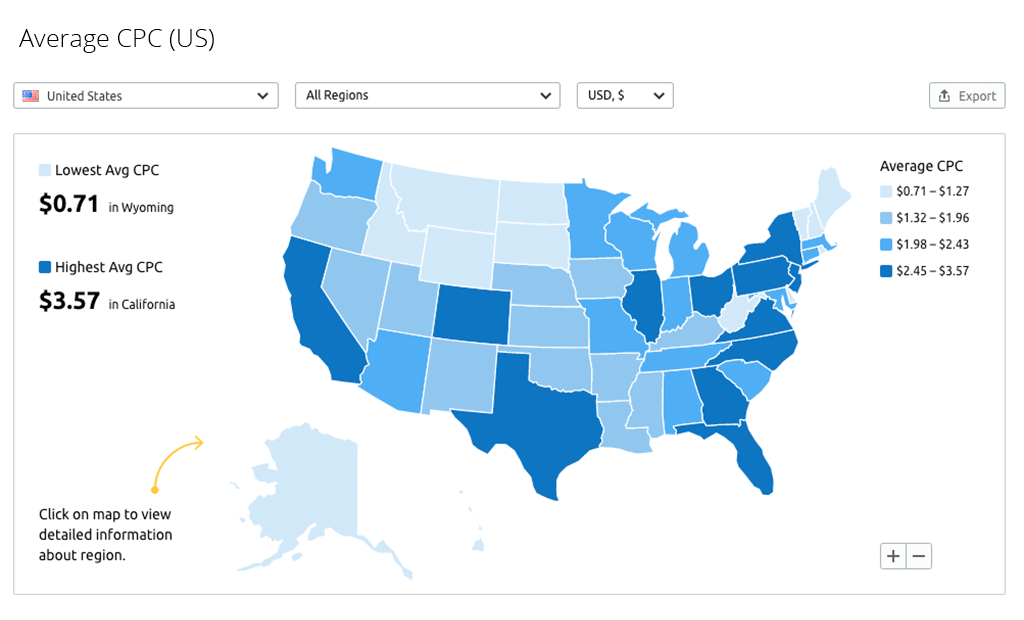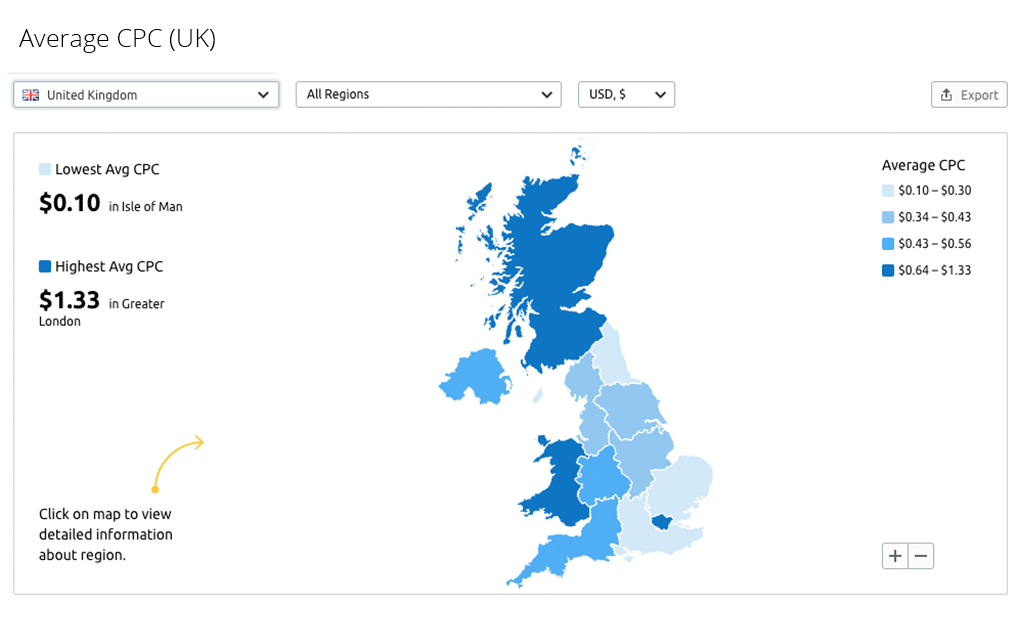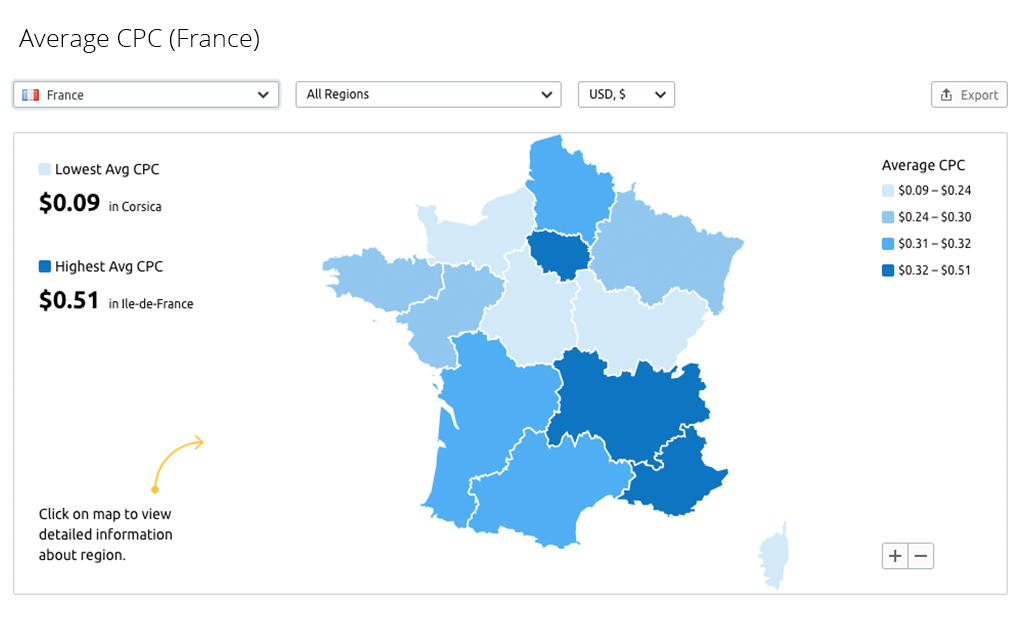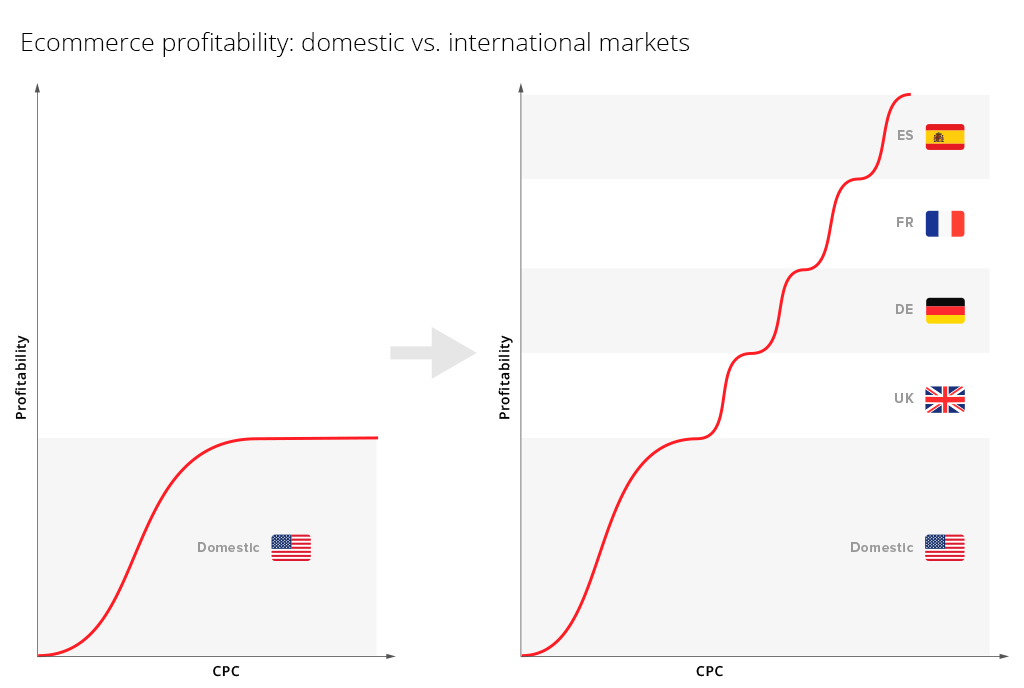Google Shopping is a huge international ecommerce market that offers retailers ever-increasing global sales opportunities. Today almost 60% of worldwide online shoppers purchase from overseas with the highest percentage in Europe (63.4%). According to Forrester’s estimations, international sales will exceed national sales by 17% by 2022.
The worldwide opportunity is definitely there in ecommerce.
In fact, few business growth strategies could potentially multiply the size of an ecommerce business. Using Google Shopping to reach a wider global audience may be one of them. Translating and localizing the retailer’s product feeds and website are fundamentally important to get the best results.
Herbert Knibiehly, Chief Marketing & Product Officer at Glopal, talks about how to leverage Google Shopping for selling internationally and discusses:
- Minimizing acquisition costs
- Optimizing international Shopping campaigns
- Maximizing sales conversions and much more.

Herbert Knibiehly, Chief Marketing & Product Officer at Glopal
Expanding your sales worldwide with Google Shopping: interview with Herbert Knibiehly
What’s the impact of Google Shopping on ecommerce and what’s driving its growth?
Herbert: Google Shopping is a huge traffic-driving source that can substantially increase earning potential for online stores. It’s growing faster than paid search and text ads (24% vs 17%) and has around 30% higher conversion rates than text ads.
As to the growth of Google Shopping, an important driver is mobile. It accounts for a large share of clicks and conversions in search and shopping, roughly 60-70%.
Further, new rich formats such as Showcase Shopping ads are gaining momentum. They saw increased activity in 2018, generating its highest percentage of total mobile Google Shopping clicks (4.67% in October).
It’s also worth mentioning that with the launch of Target ROAS (Return on Ad Spend) as a new Smart Bidding strategy in 2019, Google shows that profitability is more than ever a key priority for retailers.
Finally, cross-country sales can soon become a major driver on Google Shopping. Over 90% of the retailers we’ve surveyed declared their willingness to invest in international Shopping campaigns. By selling beyond their domestic markets, merchants can reach wider audiences. This is actually where the real sales opportunity starts, especially if local markets are competitive, like those in the USA or the UK.
What motivates retailers to consider worldwide sales opportunities?
Herbert: A good motivation to go global is high competition on the retailer’s domestic market. Established markets, such as the US or the UK, are large, but also saturated and showing a tendency towards a slowdown in growth.
Thus, when retailers reach a plateau on their local market, they can increase their market size and achieve lower acquisition costs, e.g. cost-per-click, by expanding abroad. New markets are especially effective when there’s a limited availability of specific products or unmet demand for unique products from overseas. The reality is that the retailer’s products may be in high demand in places they haven’t considered before.
For example, Italy shows a lack of dynamism in the local offering. As domestic brands tend to struggle to keep up with the pace of demand, many products have to be imported from abroad, e.g. clothes from foreign brands or vehicle parts for cars.
Another benefit for global sellers is all-year-round sales of seasonal products. For instance, if merchants offer bathing suits and it’s downtime in winter in the northern hemisphere, countries in the southern hemisphere, such as Australia, can help keep sales of bathing suits up and running in the low cold season.
International sellers can also profit from more trading hours. For example, when American buyers fall asleep, Europeans may just start browsing for products. Selling internationally truly unlocks the “365 days per year, 24/7” potential.
The possibility of satisfying the unmet demand for unique products from overseas is one of the biggest worldwide opportunities for ecommerce retailers.
How can ecommerce acquisition costs be lower internationally than domestically?
Herbert: On Google Shopping retailers can sell on less competitive foreign markets with high sales potential. As I mentioned, these may be markets where local online sellers aren’t able to offer specific products or meet the local demand.
The possibility of satisfying the unmet demand for unique products from overseas is one of the biggest worldwide opportunities for ecommerce retailers. This is how conversion rates can go up and CPC (cost-per-click) can go down due to a lower level of competition.
For example, comparing CPCs in the USA, Europe and Canada, the average CPC in Europe in some product categories can be even 5 to 7 times lower than in the USA. This implies lower acquisition costs and much higher profitability on selected European markets.

Expanding your sales worldwide
 The reality is that over time, paid marketing campaigns tend to reach a plateau in a given market. When this happens, increasing CPCs further to grow traffic tends to decrease campaign clicks, sales and the overall profitability. What helps to increase profitability is lowering CPCs.
The reality is that over time, paid marketing campaigns tend to reach a plateau in a given market. When this happens, increasing CPCs further to grow traffic tends to decrease campaign clicks, sales and the overall profitability. What helps to increase profitability is lowering CPCs.
Expanding Google Shopping campaigns abroad allows retailers to tap into new markets that are full of profitable sales opportunities. This is due to the additional visibility to international buyers and the low CPCs on these markets. All combined, the new audiences can typically generate a profitable sales upside of 15% to 30% for merchants.
To summarize, launching products in new countries allows ecommerce retailers to reach new audiences at a lower CPC. This way they can significantly increase sales whilst maintaining or improving their ROAS.

What are the basic recommendations for launching international Google Shopping campaigns?
Herbert: Above all, the submitted product information must be clear and understandable for the target audience. Providing the correct information is important as Google performs regular reviews to see if it matches the retailer’s website. It’s necessary to check product feed specs, shopping policies and other requirements, including language and currency.
In the case of international shoppers, first, the retailer’s product feeds and website should be translated and localized. This includes product descriptions, titles, attributes, currencies, checkout flow and so on.
Second, to get Shopping ads running in other countries, tax & shipping prices must be defined and delivery information submitted. Inaccurate shipping costs can result in a warning in Google Merchant Center.
Third, product export restrictions are important as selling some products is prohibited, such as fighting knives or throwing axes. Further, stores offering certain merchandise domestically through Google Shopping, e.g. fur or skins of certain reptiles, may not be able to do that in other countries.
Finally, over time retailers might conclude that their best selling products differ per country, which may depend on product export restrictions, shipping reality and local purchase behaviors. What can be legally or easily delivered in some countries may not be in others. Some products may be popular in one country, but the demand in another country may be insignificant.
Launching products in new countries allows ecommerce retailers to reach new audiences at a lower CPC. This way they can significantly increase sales whilst maintaining or improving their ROAS.
Isn’t it more efficient for international retailers to keep ads in English? Most shoppers should understand this language.
Herbert: As English is the world’s most spoken language, it may seem like the optimal choice when advertising products internationally. But Google policies require merchants to submit feeds in the local buyer’s language and provide a fully localized buyer experience.
Moreover, the reality is that in international ecommerce, English is often not the language of preference when it’s not the shopper’s native language.
According to research carried out by Eurobarometer, 42% of the respondents have never purchased in a foreign language. 56.2% of consumers say that obtaining information in their own language is more important than the price. Further, based on Common Sense Advisory’s data, buyers spend over 72% of their web browsing time on local language sites .
Additionally, buyers prefer to see prices in their currency, without having to use a currency converter. 33% are likely to abandon a purchase if pricing is listed in USD only and over 90% prefer to shop and purchase in their local currency, according to Penton Research.
As a result, in most markets you’ll have to create a localized Google Shopping product feed with full translation of all your product catalogs and accurate currency conversion of your product prices.

Cross-country sales can soon become a major driver on Google Shopping. Over 90% of the retailers we’ve surveyed declared their willingness to invest in international Shopping campaigns.
Is there an easy & efficient way to increase sales on Google Shopping almost immediately?
Herbert: Launching your business in new markets is an easy way to increase your sales and profitability. The best way is to translate and localize your Google Shopping feeds, sort out international shipping options and international taxes & duties. The most effective & efficient way is to automate this process.
Glopal's automated solution ensures that the merchant’s store qualifies for Google’s requirements, including language & currency. It identifies the best international opportunities, lowers average CPC and increases global traffic. It truly allows ecommerce retailers to scale their businesses internationally without adding overhead.
Generate and convert HTML tables for websites with DivTable.com! Try this free online tool!






